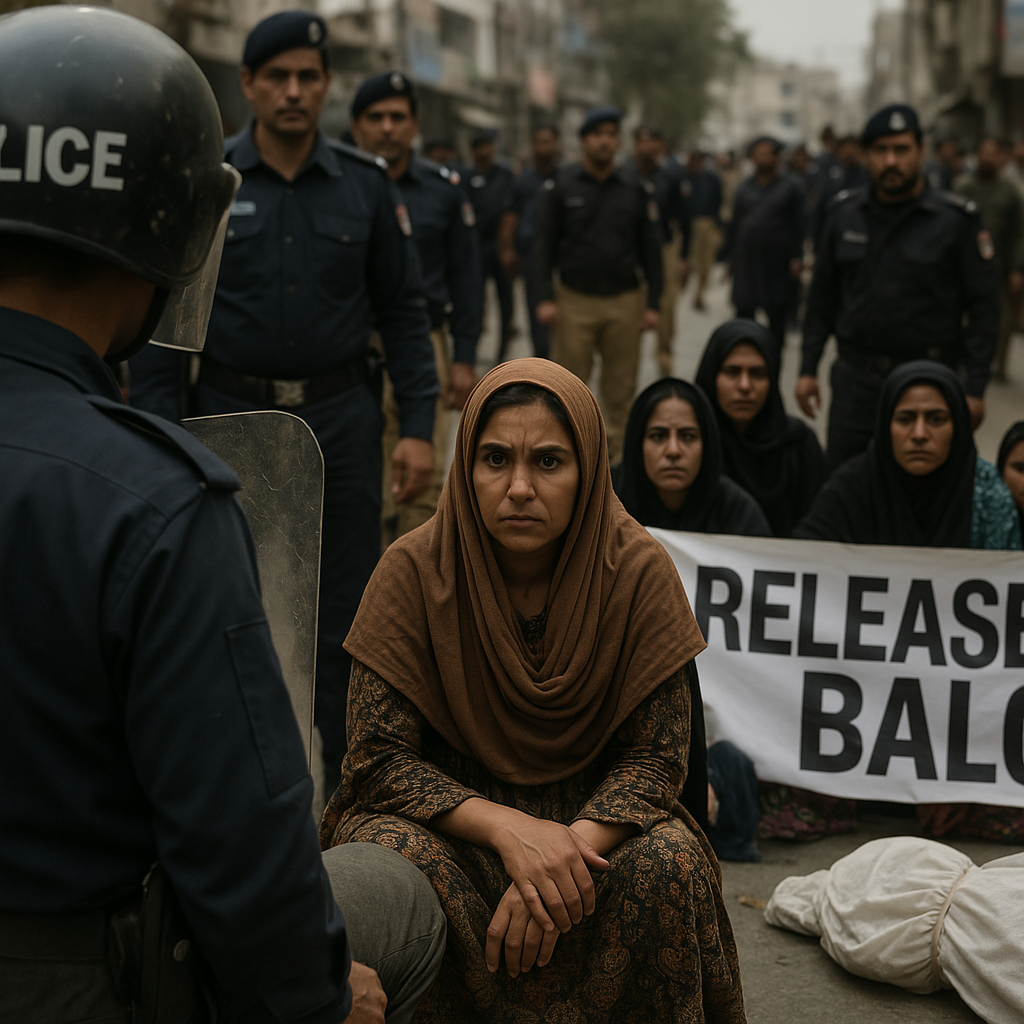UN Experts Demand Pakistan End Crackdown on Baloch Protesters, Release Activists
The experts voiced particular concern about the actions taken against the Baloch Yakjehti Committee (BYC) — a prominent grassroots network advocating for the rights of Baloch people.

- Country:
- Pakistan
A group of United Nations independent human rights experts has issued a strong statement condemning Pakistan’s ongoing crackdown on Baloch human rights defenders and peaceful protesters. The experts urgently called for the immediate release of detained activists and expressed deep alarm over recent reports of arbitrary arrests, enforced disappearances, and lethal force used against demonstrators from the Baloch minority community.
The experts voiced particular concern about the actions taken against the Baloch Yakjehti Committee (BYC) — a prominent grassroots network advocating for the rights of Baloch people. The BYC has been at the forefront of peaceful mobilizations demanding justice for victims of enforced disappearances and extrajudicial killings, especially within Balochistan, a province long marred by human rights abuses and separatist insurgency.
According to the statement, tensions escalated significantly following a March 11, 2025 terrorist attack on a passenger train, allegedly carried out by Baloch separatists. In the aftermath, Pakistan’s Counter Terrorism Department (CTD) reportedly launched a sweeping operation that led to the arrest or disappearance of several BYC members. Among them were prominent human rights defenders who have been vocal critics of state repression.
The situation took a deadly turn on March 21, when Quetta Police stormed a peaceful protest organized by the BYC outside the University of Balochistan. Protesters had gathered to demand the release of forcibly disappeared activists. According to eyewitnesses and human rights monitors, police opened fire, killing three people, injuring several others, and arresting dozens.
“Once again, we see the use of excessive force as a first response to peaceful protests,” said the UN experts. “While we recognize the pain and trauma caused by the recent terrorist attack, violent suppression of civil society voices cannot be justified under any circumstances.”
In an act of defiance and mourning, BYC leaders including Dr. Mahrang Baloch, a widely respected woman human rights defender, staged a sit-in protest with the bodies of the deceased at Saryab Road in Quetta. In the early hours of March 22, riot police forcibly dispersed the demonstration using tear gas and batons. Mahrang and several others were detained, with her whereabouts reportedly unknown for nearly 12 hours. It was alleged that she was denied access to legal counsel and family contact during this period. Authorities later charged her under Pakistan’s Anti-Terrorism Act.
Further protest actions were met with similar force. On March 24, another leading BYC member and woman rights activist, Sammi Deen Baloch, was arrested outside the Karachi Press Club along with other demonstrators. Police invoked the Sindh Maintenance of Public Order Ordinance, ordering her detention for 30 days.
“We are extremely concerned for the welfare of Dr. Mahrang Baloch, Sammi Deen Baloch, and all those detained for exercising their right to peaceful assembly,” the experts emphasized. “It is critical that Pakistan refrain from using counter-terrorism or public safety laws to target human rights defenders. These actions violate international legal standards and Pakistan’s obligations under human rights treaties.”
The experts also pressed the Pakistani government to clarify the fate and whereabouts of all persons subjected to enforced disappearances. They reminded authorities that disappearances constitute a serious human rights violation and are prohibited under international law, regardless of the circumstances.
In their concluding remarks, the experts urged Pakistan to uphold the UN Global Counter-Terrorism Strategy, which calls for addressing the root causes of terrorism through inclusive political dialogue, human rights protections, and rule of law — rather than through violent or repressive measures.
The United Nations experts noted that they are currently in contact with Pakistani authorities and will continue to monitor developments closely. Civil society groups, both within Pakistan and internationally, have echoed these concerns, demanding transparency, accountability, and the immediate release of all arbitrarily detained individuals.










